I just sold my car. It was a 2002 Pontiac Bonneville. My parents bought it new back in August of 2002. I learned how to drive in that car, and I bought it from my parents in 2008 when I moved to Texas for a co-op job. I planned to keep that car until it wouldn't run anymore, so I tried to take as good care of it as possible.
However, recently it just didn't make sense for me to keep owning that car. I got a remote job as a software engineer a couple months back, and for the job before that I had taken to walking or riding my bike to work.
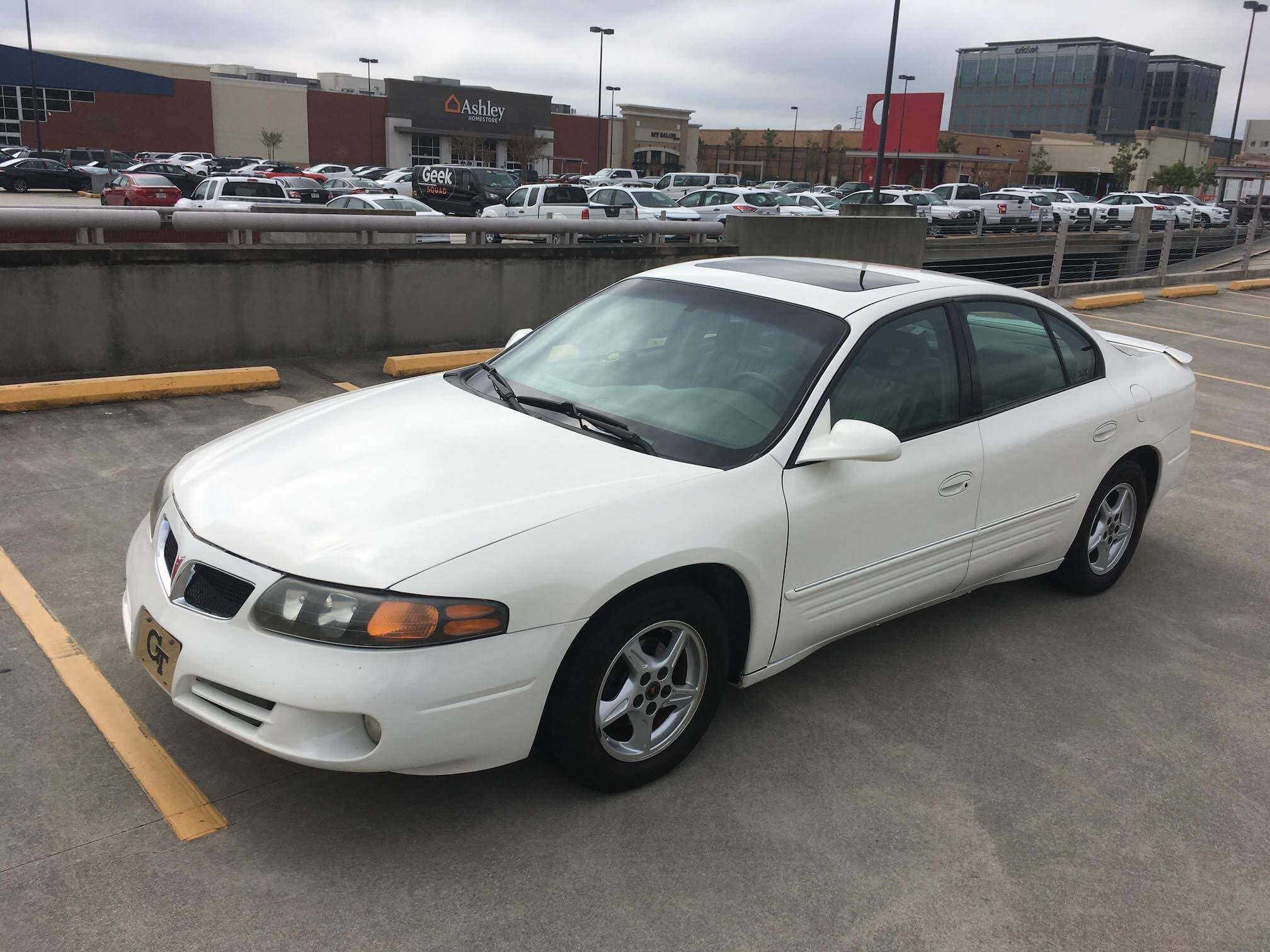
For the past year or so, I ended up driving my car so rarely that I had to start doing oil changes based on time rather than mileage. And ironically (I think?) most of the trips that I made in that car recently were for oil changes or car washes. That car was no longer a tool for getting me from place to place. It was now a thing that required time, money, and attention, and it gave me nothing in return.
So I decided to sell it! I talked to my coworkers, and one of them told me that the last time he sold a car, he listed it for $500 more than he really wanted. That way when the buyers inevitably started to haggle, he could knock $500 off the price and still be happy about the deal. (It turns out this negotiating tactic is called "anchoring".)

I checked the KBB private party value for my car in "very good" condition. I think it was between $1800 and $1900. For me that just seemed like a very low number. My car was in great condition! It didn't look half its age! So I rounded up and decided a more fair price would be around $2500.
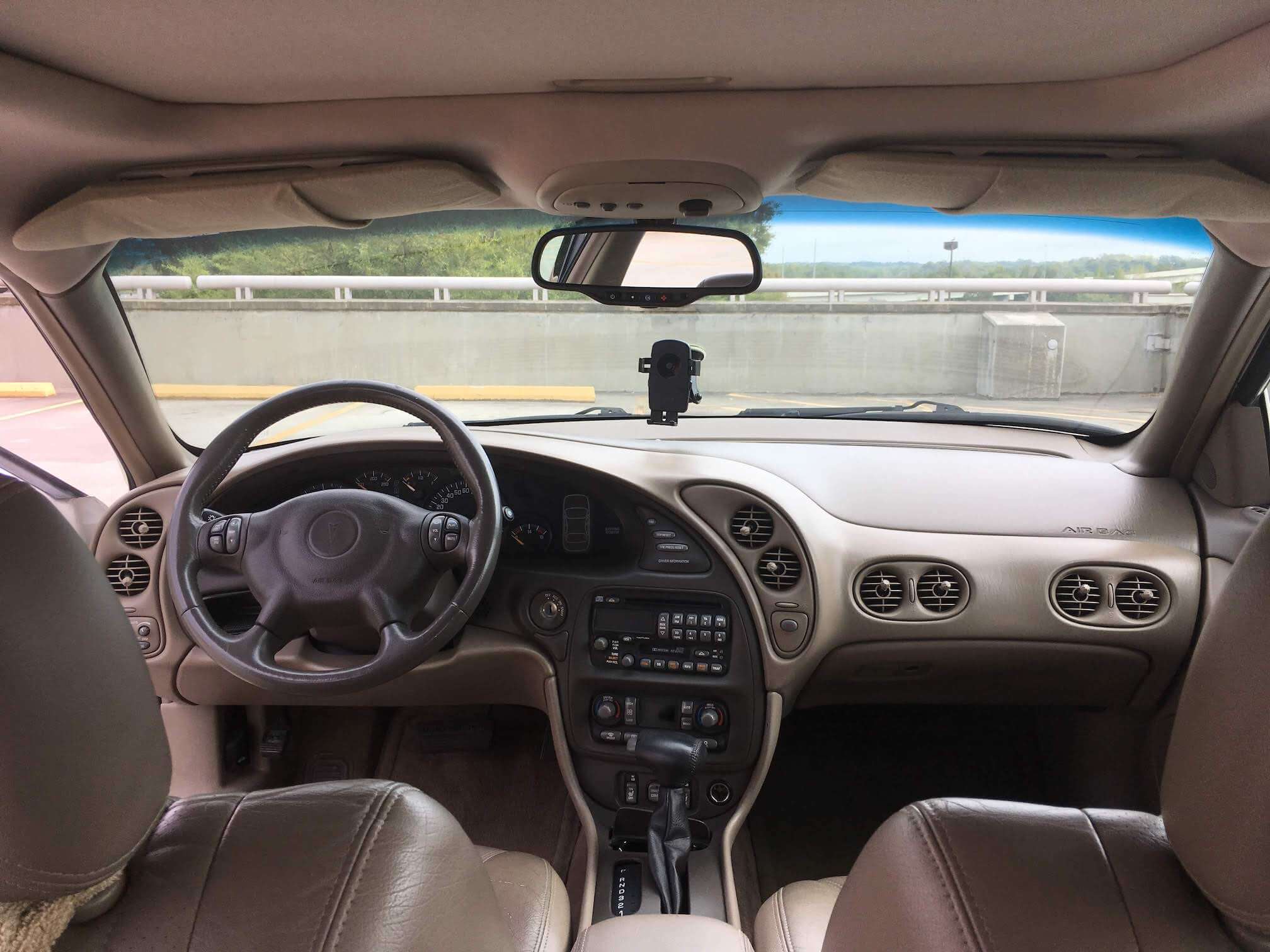
Initially I tacked an extra $500 on and made my asking price an even $3000, but I decided that looked a little too round. It looked like I had no idea how much this car was worth, it was old, and I was asking for how much I wanted rather than how much I thought someone should pay for the car. So I knocked $100 off to get the decidedly less round asking price of $2900. That looked much more professional and serious (in my eyes.)
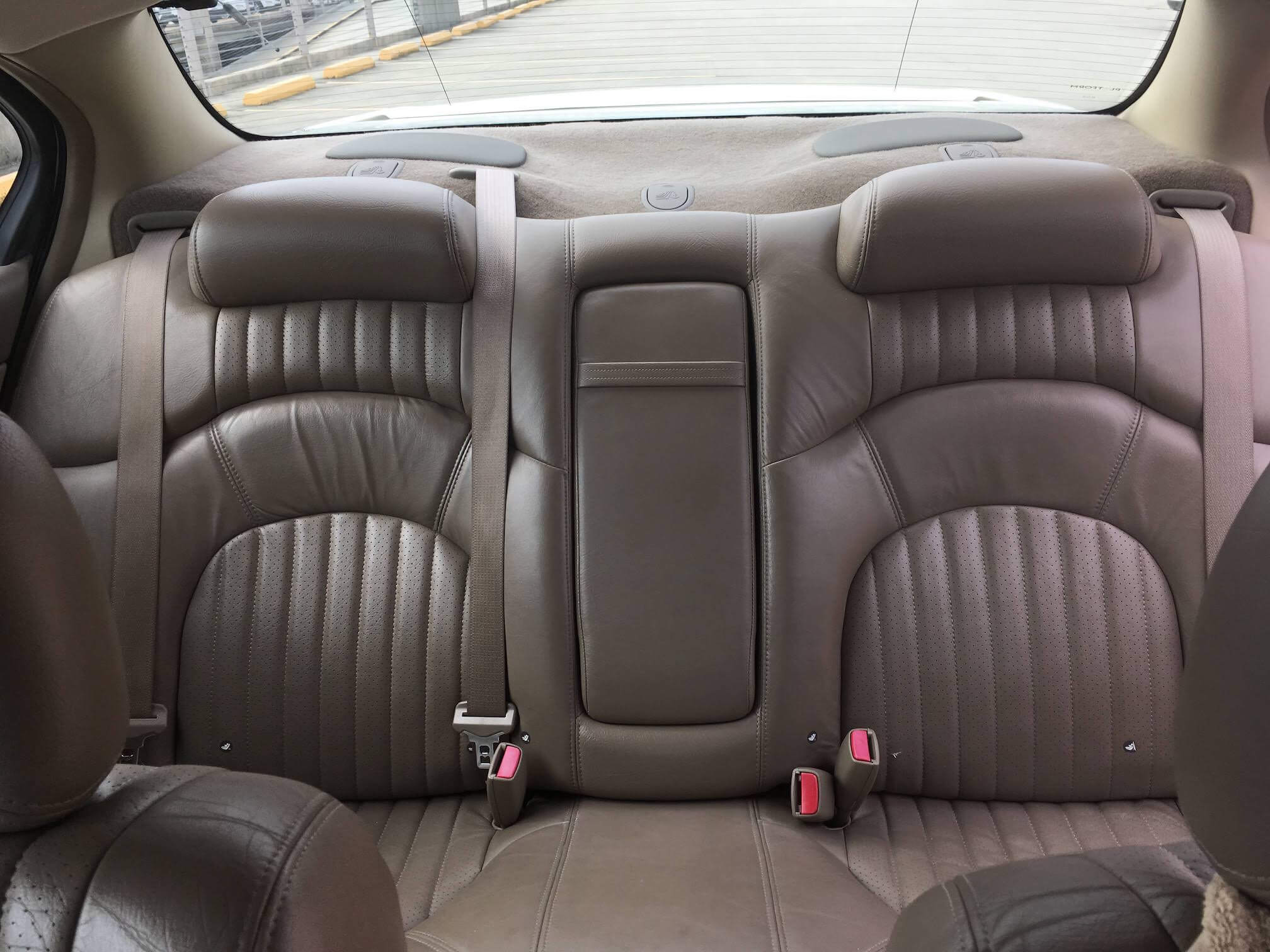
I posted it on Craigslist with a bunch of pictures, and I stole the textual content from another car ad on Craigslist. (Obviously, I modified the text content to be factual and to pertain to my vehicle instead.)
A couple days later I ended up selling my car for $2400 to a guy who drove what looked like a Pontiac Grand Prix that was even older than my Bonneville. He called the Bonneville his "Dream Car", so I guess everyone ended up happy.
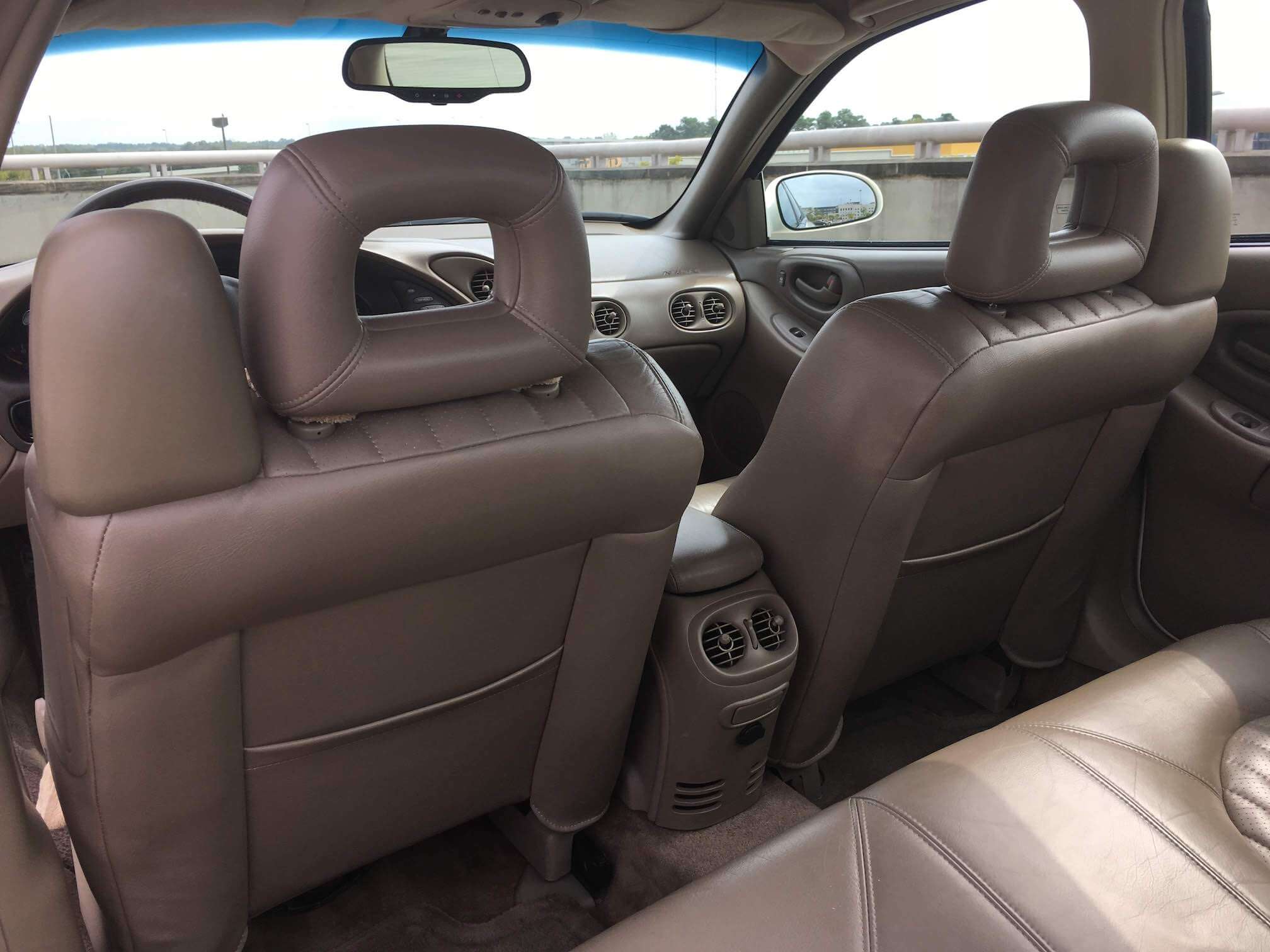
After selling that car I decided to crunch some numbers just to see how the sale worked out for me. First a few facts:
- My parents purchased the car new in August 2002 for $26,112.38.
- I purchased the car from them in May 2008 for $8,500.
- I sold the car in October 2019 for $2,400.
- When I sold the car, I was paying...
- $25 per month for parking at my apartment.
- $35 every six months for oil changes.
- $222.83 every six months for insurance.
- $21 every year for tag renewal.
- $25 every year for emissions inspections.
Based on these numbers, it would cost me $4,308.30 just to own the car for the next five years. And that's not even counting depreciation. By selling that car, I'll be saving $2400 + $4,308.30 = $6708.30 over the next five years.
While my parents owned that car, assuming exponential depreciation, it depreciated 19.5% per year. While I owned it, it depreciated 11.1% per year.
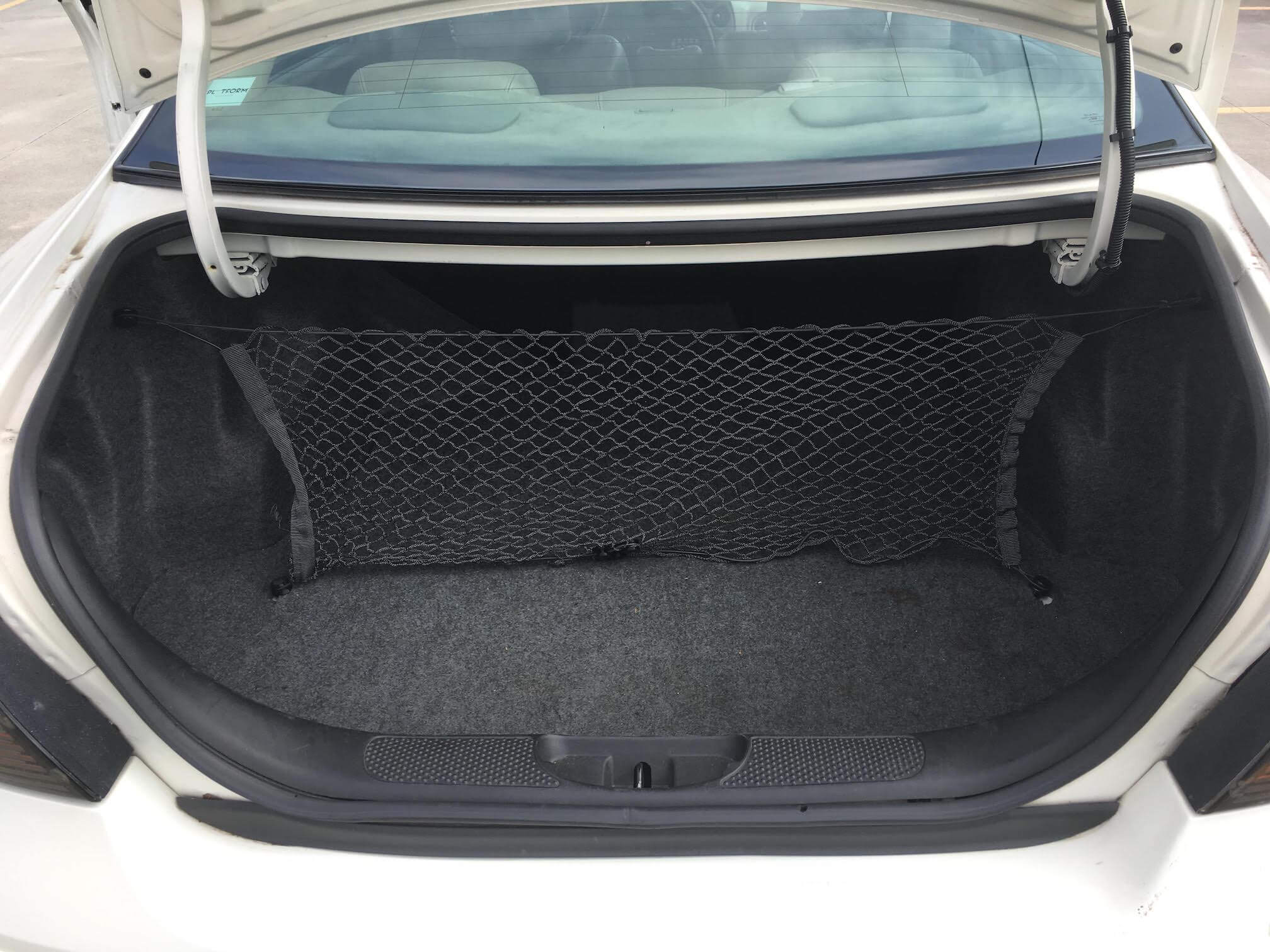
The bottom line of this whole story is that it costs about $70 per month just to own a very basic car. That's ignoring any major maintenance, fuel, and and depreciation!
If you actually drive your car, your costs will go up! If you have a car that isn't basically worthless like mine was, it will continue to lose value! Newer cars lose 20% to 30% of their value every year! And even if your car is older, it'll continue to lose about 10% of its value every single year!
Cars are expensive.
Photo by Patrik Storm